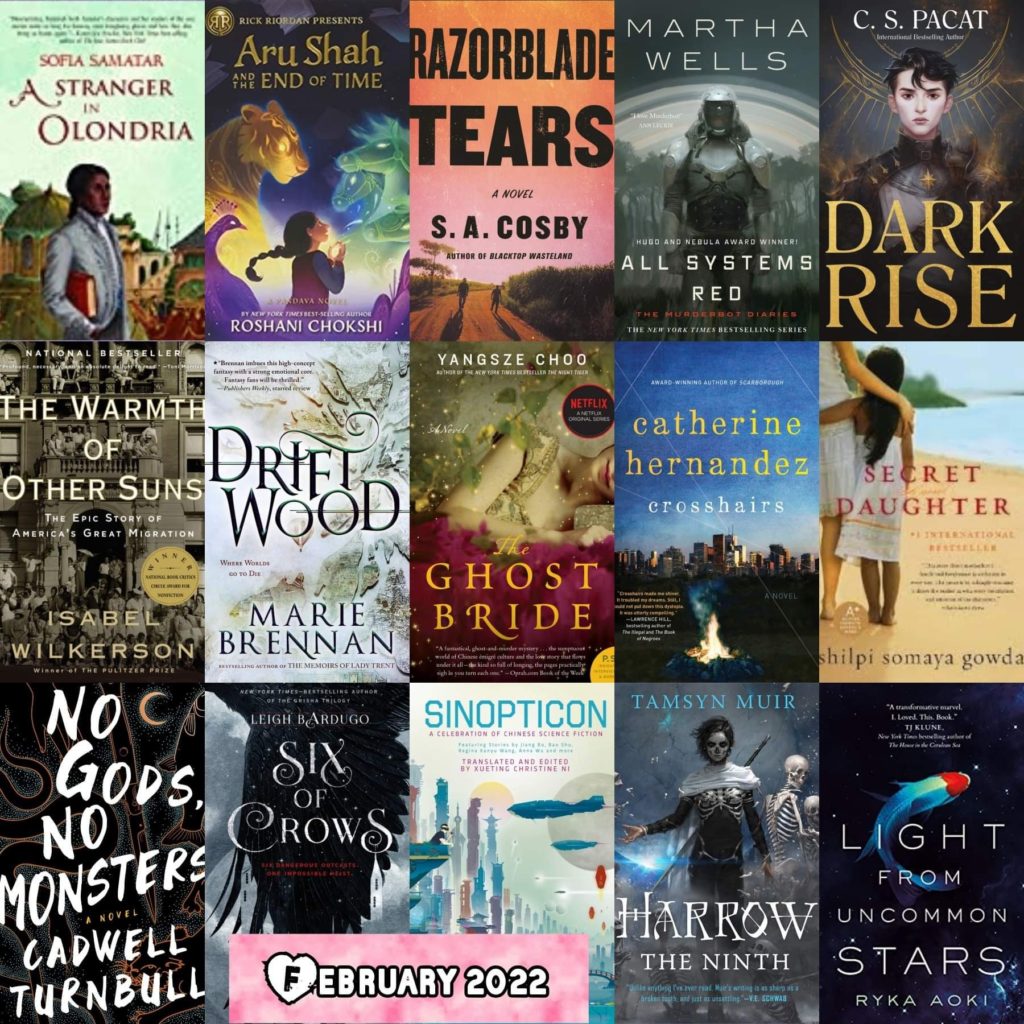End of month book collage! There are still a few EST hours left in February, but I’m not going to finish any of the books I’m currently reading by tomorrow.

A Stranger in Olondria, by Sofia Samatar
Aru Shah and the End of Time, by Roshani Chokshi
Razorblade Tears, by S.A. Cosby
All Systems Red, by Martha Wells
Dark Rise, by C.S. Pacat
The Warmth of Other Suns: The Epic Story of America’s Great Migration by Isabel Wilkerson
Driftwood, by Marie Brennan
The Ghost Bride, by Yangsze Choo
Crosshairs, by Catherine Hernandez
Secret Daughter, by Shilpi Somaya Gowda
No Gods, No Monsters, by Cadwell Turnbull
Six of Crows, by Leigh Bardugo
Sinopticon 2021: A Celebration of Chinese Science Fiction, edited by Xueting Christine Ni
Light From Uncommon Stars, by Ryka Aoki
